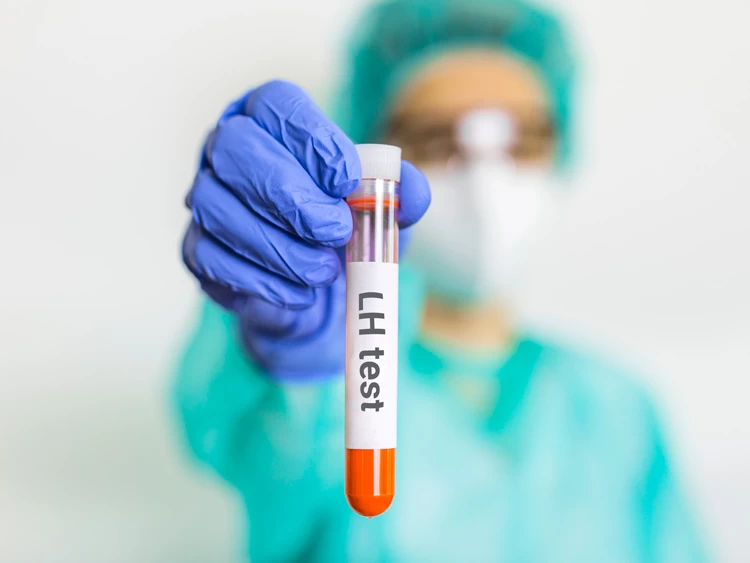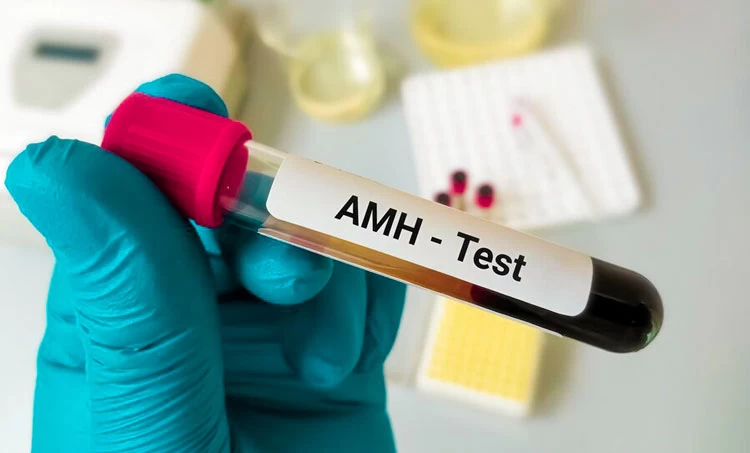The level of LH in the blood depends on the time of the menstrual cycle, age, and general health of the patient. High levels of LH can be a sign of ovarian disorder, PCOS, menopause, an autoimmune disorder, or hypothalamus insufficiency. A low amount of LH in the blood also indicates pituitary gland disorders, malnutrition, or a hypothalamus disorder.
Ovarian follicles secrete anti-müllerian hormone during the childbearing age. An AMH test, therefore, is used to estimate the number of remaining eggs in the ovaries. The AMH test normal range for women under 35 is typically 1.5 to 4 ng/mL. The lower the level of this hormone in the blood, the lower her chance of natural pregnancy.
FSH test measures the level of follicle-stimulating hormone in blood to detect early puberty and the cause of infertility, like low sperm count and missing ovulation. The normal range of FSH in men is 1.24 to 16.4 IU/L. In women, the normal amount of FSH depends on the stage of the menstrual cycle at the time of the test.
The placenta naturally produces HCG during pregnancy, but in some cases, it is urgent to receive it as an injection. This hormone improves sperm parameters, balances both male and female hormones, helps the egg follicles grow better, and regulates ovulation. Therefore, the chance of pregnancy increases drastically after getting 5,000 to 10,000 units of this hormone.


![What Is the FSH Test? + [Normal Range for Male & Females] How Is FSH Interpreted?](https://hws.raadinahealth.com/images/user_upload/blog/fsh/4_1658308694_main.webp)
